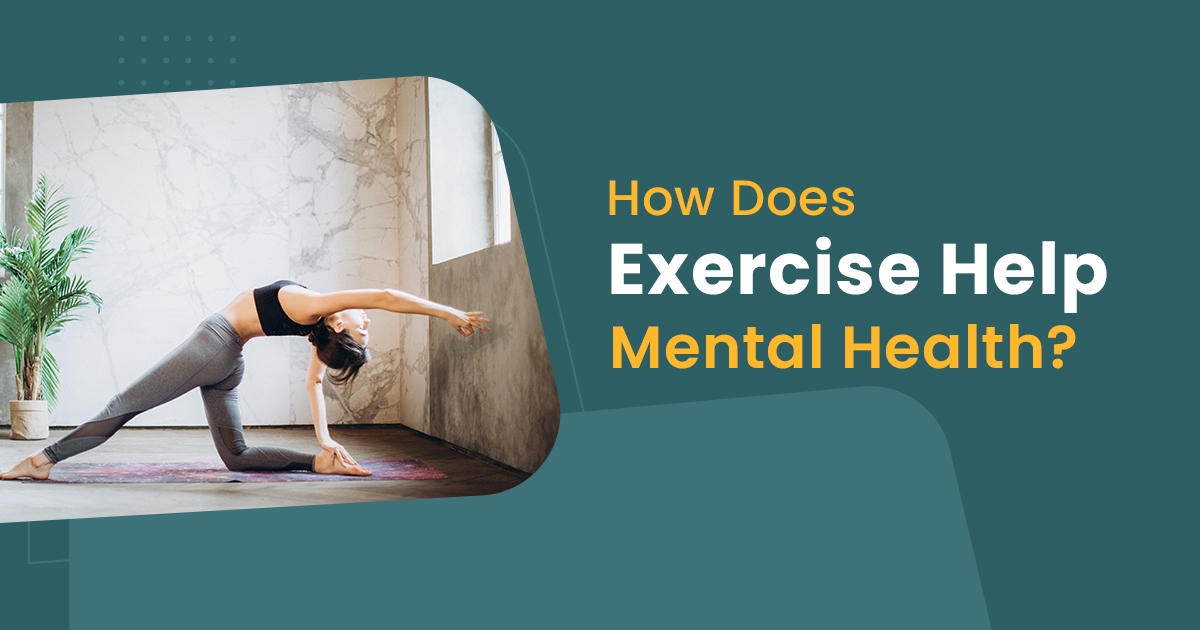The scientific community unanimously agrees, and psychologists worldwide started to prescribe exercise as part of their treatment. Therefore, if you’re looking for a little bit of motivation to get out of bed and hit the gym, knowing how exercise improves mental health might help. To answer the question “How does exercise help mental health?” we need to take a step back and explain how the body communicates with the mind.
Understanding How the Mind and Body Communicate
Let’s start by looking at the brain. Everything that we are, our memories and mental abilities, directly result from how the nervous system functions. Billions of neurons (nerve cells) form a vast network able to almost instantly send and receive chemical and electrical signals throughout the whole body. Ions are positively or negatively charged particles that can depolarize (activate) a cell. In contrast, neurotransmitters and hormones are the messengers that carry information from one cell to another. If you want to learn more about this process, read Frontier’s article titled “Wake up, Brain! Using Electricity to Think and Feel Differently.”
We need to remember now that there’s bidirectional communication between the cells of our body and the cells within the brain (our mind). This shows us three things:
- Our external environment stimulates our senses (eyes, ears, skin, nose, etc.), which then convert the information into an electrical signal that changes the brain’s activity – that’s how we understand the world around us.
- The brain then sends messages throughout the body that changes our physiological response based on that information. For example, our heart rate goes up, our muscles become tense, and so on.
- Finally, these changes inside our body send information back to the brain as feedback. What the brain will do next depends on this internal feedback and the ongoing data from our external environment.
What Happens Inside Our Body When We Exercise?
Now, let’s connect this knowledge of the communication between our environment, mind, and body to our topic at hand. How does exercise fit into all of this?
Imagine that you’re walking on the road and see a lion in front of you. Your eyes almost instantly send visual information to the bran, which perceives the lion and recognizes it as a danger. Within milliseconds, it instructs your body to prepare for a run (to escape). Adrenaline and noradrenaline are released in your bloodstream, which is why your heart rate goes up, and blood flow is directed away from your intestines toward your skeletal muscles (arms and legs). Hopefully, before you even have a chance to process what’s going on entirely, you’re in the clear. This quick response (essential for survival) is fully automatic (not under our control) and known as the sympathetic nervous system.
The sympathetic nervous system is activated when your body is under stress, both physical (exercise) and emotional. However, there’s a crucial difference between them – when we exercise, we act synergistically to the sympathetic nervous system.
One example is when the brain sends messengers instructing the fat cells to release nutrients in the bloodstream and into the muscles (part of the sympathetic nervous system). By running, we activate the muscles and use those nutrients. As those nutrients are being consumed by the muscles the brain receives feedback from the body that everything is going according to plan, so it can stop releasing stress hormones (adrenaline, noradrenaline, glucocorticoids).
On top of that, during this process, almost as a reward (the underlying mechanisms are still unclear) the brain activates the release of endorphins – the “feel-good” hormones. This is why many people feel euphoria and joy during or after exercise.
Emotional Stress and Exercise
The release of endorphins is a powerful mood booster that can improve mental health when we work out regularly. But, the benefits of endorphins are twofold. In the beginning, we asked, “Does exercise prevent mental illnesses?” and by looking at their effects on the body, we can start connecting the dots.
When we exercise, we put the body under physical stress. When we worry, we put the body through psychological stress. The brain reacts almost the same to both conditions – it activates the sympathetic nervous system, producing the same physiological reaction – increased heart rate, increased blood pressure, the release of nutrients in the bloodstream, and so on.
But now, all that preparation would go to waste. When we’re under psychological stress, for example, when we’re anxious, we don’t go for a run; we go to bed or sit in front of a computer. So technically, our body is responding abnormally in response to stress. Then, the brain gets feedback that something is wrong, its survival mechanism is not working properly. And, like a downward spiral, it reinforces the stress response, releasing more adrenaline and glucocorticoids, making us more stressed.
Needless to say, we can put a stop to this, by simply going for a jog, running, or hitting the gym. The stress we’ve accumulated during the day can be properly used up by our muscles through exercise. The brain will stop “panicking” and endorphins will be released.
Discover How Exercise Help Mental Health
Exercise helps mental health and prevents mental illnesses in more ways than one. What we’ve explained so far was the possible underlying mechanism that links mental health and exercise. This provided us with a good neurophysiological explanation of how exercise might improve mental health. But, there are also psychological explanations, which represent a more indirect mechanism of improving mental health.
Psychological explanations:
- Exercise provides a distraction from negative thoughts. Some mental health issues are caused by intrusive thoughts, worrying, overthinking, interpersonal conflicts, etc. While you exercise, you must be present at the moment, focused on the activity you’re doing. This gives people a break from their problems and completely changes their mood.
- Exercise promotes confidence. Those who work out regularly know that exercise makes you feel capable, powerful, and strong – all traits of super confident people. By being confident, you’re more likely to believe that you can solve your problems and improve your life.
- Exercise positively impacts one’s body image. Negative body image leads to poor mental health and can severely impact one’s quality of life. With exercise, people can lose weight or gain muscle mass, which will change the way they see themselves.
- Group sports provide social support. Isolation and loneliness are two significant risks for mental health illnesses. Therefore participating in group sports and meeting people who share the same interests can make a difference and help one’s overall well-being.
- By improving physical health, exercise prevents mental health issues caused by poor health. Last but not least, exercise boosts our immunity and helps us ward off diseases. We know this, but we might not be aware that a lot of mental health issues are caused by poor health – from back pain to digestive problems, diabetes, hypertension, and even heart conditions. Staying healthy is an excellent way of keeping our mental health in check, too.
Does a Lack of Exercise Hurt Our Mental Health?
What do isolation, stress, lack of sleep, and poor eating habits have in common?
All of them severely deteriorate our mental health and lead to anxiety, depression, or apathy. And, in those states, exercising often seems like the last thing you want to do. Curling up in bed and re-watching your favorite tv-show until you feel better sounds like a good idea – just as you would do if you had a common cold.
Unfortunately, this would be a bad decision. In 2014, NASA conducted an interesting experiment wanting to investigate the nature and magnitude of the deterioration of human bones and muscles in space. To do this, they asked one participant (Drew Iwanicki) to lay down in bed for 70 days straight – conditions similar to those of astronauts in space. The results are not what interests us but Drew’s personal experience during the experiment.
According to him, laying in bed for so long took a significant toll on his mental health. Once he passed the short honeymoon phase, where he felt rested and relaxed, he started to feel symptoms of severe anxiety, frustration, and heightened sensory sensitivity.
This story is an excellent example of how inactivity can affect mental health, but it doesn’t really explain what happens inside our bodies and how exercise combats such mental issues. In other words, does exercise help mental health?
Help Your Mental Health
Even though science is still trying to uncover how exercise helps mental health, with everything that we know so far, we should be at the door, putting on our running shoes. In this article, we tried to share some insights into the overlap between fitness and mental health in the hopes of finding another way to help people improve their quality of life.
We learned that staying in bed, hoping to sleep it off, does not work for mental illnesses – it actually makes things worse. Exercise can help in two ways. First, it stops the release of stress hormones. Second, it promotes the release of endorphins – the “feel-good” hormones. Beyond that, exercise helps mental health by reducing or removing psychological stressors such as low body image, worrying, poor health, etc.
Exercise is a great supplemental part of a treatment plan for many mental health disorders. In combination with the proper medications and therapies offered by a Story Wellness team member, treating your mental health issues is as simple as calling (866) 476-2823.





